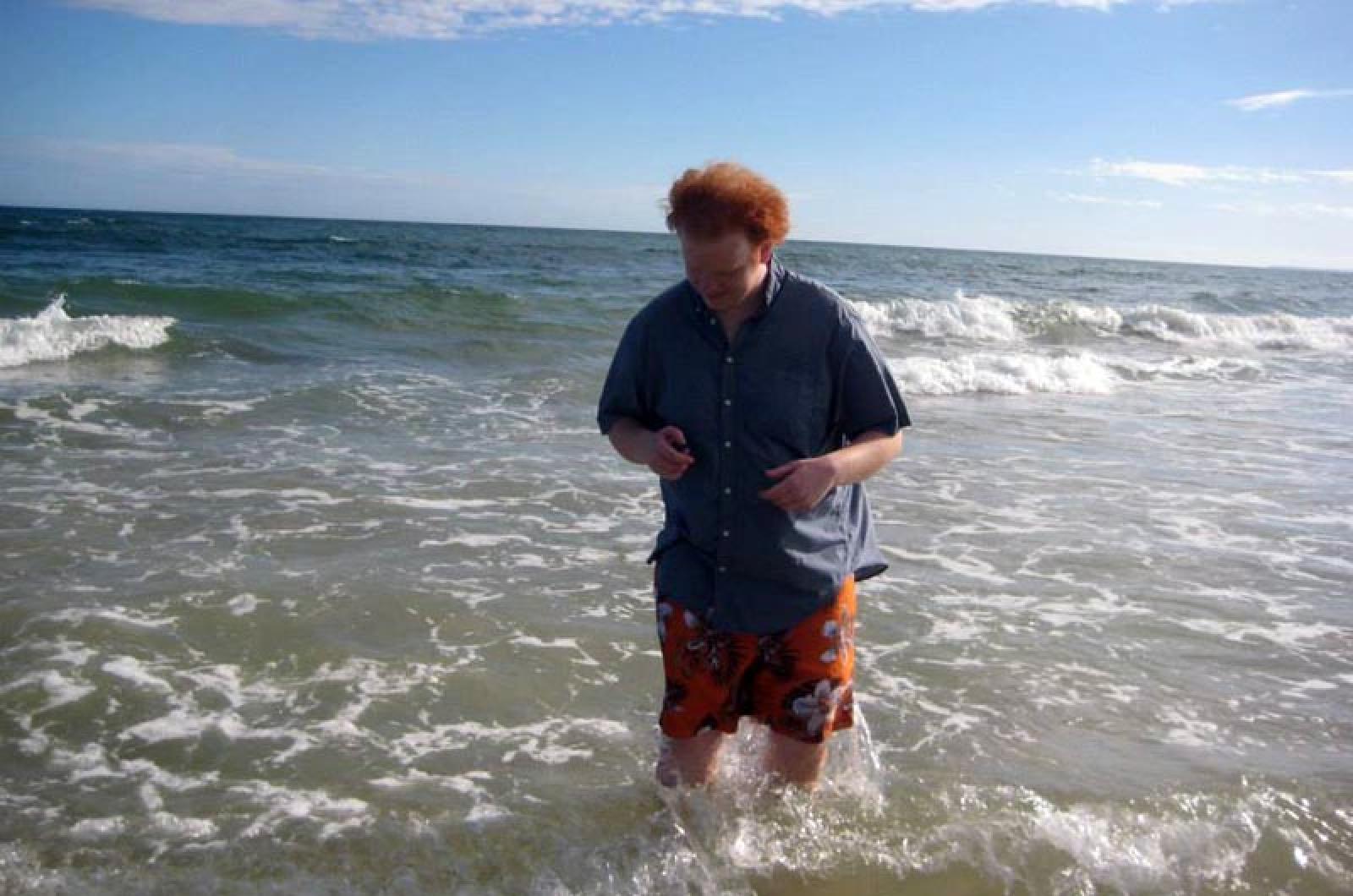Last Friday I visited my son’s teachers at the regional high school. He is in a special education classroom where he focuses on vocational training, communication and how to cook and care for himself, in between fashioning impressive works of art, including a fine ceramic salsa and chip dish I opened last Christmas.
Now that Danny is 19 years old, it becomes even more crucial to plan strategies with the people on his “team.” He is allowed to stay in school until he reaches age 22. After that, we have no clear idea what he’ll do. There is no coordinated set of services on the Island for the students who will ultimately leave the familiarity of the school district at age 22 with a skill set to live somewhat independently. I’m sure this means a level of frustration for educators who spend years developing these skills in young people like Danny, only to find there is not much for them after graduation.
The Island has such a strong commitment to people with disabilities. Our family has only to look in our neighborhood and see Camp Jabberwocky or to look up Martha’s Vineyard history on Google and find that the Island population developed its own sign language to accommodate the large deaf population living here. I found Martha’s Vineyard referred to as a utopia for the deaf community.
Inevitably Island parents of a child with a disability come face to face with the reality that an organization or a person with power holds many of the keys to their child’s future. The keys to his kingdom, too. Whether it is the teacher in his classroom, the neurologist, the speech therapist, the special education director at his school, the state Department of Developmental Services intake coordinator, the Supplemental Security Income case worker or the people in the community who decide how to vote on school budgets — they all have a significant impact and in a sense, my son is at their mercy.
Danny is not just a member of our family; he is also a member of the school’s student body, the town we live in, the county where we reside, the state of Massachusetts, the U.S. — heck, the world, the universe.
The experience we’ve had on our small piece of the planet, namely now this Island, has unfolded beautifully for the most part. When Danny walks down the street his neighbors usually look at him, not me. They say hello and they ask how he is doing. We came here a little more than a year ago because of a job opportunity for my husband and even though it’s been a short time, the Island feels like home.
Danny and the other children with disabilities here belong to what should be a powerful sector of our society. Census statistics show that in 2010, there were approximately 56.7 million people with varying forms of disabilities in the U.S. Other statistics out there say the number is closer to 70 million. That means it’s likely that 20 per cent of the population of the U.S., or much more than the population of all of New England, is living with some form of disability. Just think of the voting bloc that could shape. Especially if each person who was affected by or who had a personal experience with someone with a disability decided to put forth a candidate who advocated for that part of the population.
But that’s still a dream. For reasons I can’t quite grasp, other marginalized members of our society have made huge gains in changing the hearts and minds of people. In many ways, we have become a much more tolerant society and that has been wonderful to witness during my lifetime. I just wish the love extended to people with disabilities. I wish my son was recognized for his humanity rather than his autism. I wish the same for him as I do my other two children.
Despite the fact that we are lucky enough to live in a community where differences are more cherished than cursed, more so than many other parts of the country, nearly every day something happens that is a vivid reminder of Danny’s autism. Just last week a seemingly kind leader at a community event told me that my son is just as welcome there as “any other kid.” My first thought? Gee, thanks.
And I wish I had a nickel for every time a waitress looked directly at me, jerked her head toward Danny and asked, “What does he want?” Hmmm . . . I don’t know. Why don’t you ask him?
I have to hope that change will come and I hope it comes in Danny’s lifetime. He has a beautiful heart and a great sense of humor. He has a lot to offer us. All of us.
Connie Berry is a copy editor at the Vineyard Gazette; she lives in Vineyard Haven.




Comments (1)
Comments
Comment policy »